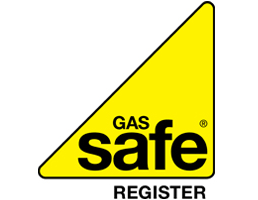Deprecated: Function wp_targeted_link_rel is deprecated since version 6.7.0 with no alternative available. in /var/www/vhosts/ukooa.co.uk/httpdocs/wp-includes/functions.php on line 6121
Deprecated: Function wp_targeted_link_rel_callback is deprecated since version 6.7.0 with no alternative available. in /var/www/vhosts/ukooa.co.uk/httpdocs/wp-includes/functions.php on line 6121
Can Hard Water Affect Heating Systems?
Most people are well aware if they live in a hard or soft water zone but aren’t familiar with the consequences. Although there are no known health risks to drinking it, hard water can affect our heating systems to the point where it is more likely to break down, resulting in hefty plumbing charges or high energy bills.
Unfortunately, in England, many residential areas are supplied with hard water, so it’s helpful to know how you can best protect your heating systems.
What is hard water?
Scientifically speaking, hard water is determined by the amount of calcium and magnesium dissolved in it. But, without having to test it for these minerals, you can tell the hardness of water by the opacity. If it is completely clear, then the chances are that it is soft, but if you pour a glass and the water is cloudy, you are in a hard water area.
If your water is hard, your hands may feel like they are covered in a thin film of residue even after washing them. This is because hard water interacts with soap and creates scum, either on your hands or washing up.
What problems can hard water cause?
Hard water can cause a few problems in your home and heating system specifically. In fact, it is linked as the sole cause to a number of common issues, such as:
1. Limescale build-up
The pipes in your heating system see a large amount of water rushing through them on a day-to-day basis.
It’s possible that when pipes are coated with limescale, they limit the amount of hot water or gas they can travel through, which will affect the efficacy of your heating system. It does this by making it difficult for the boiler to maintain constant heat levels, eventually leading to malfunction.
As well as this, there are other places in your heating system where limescale build-up is likely to occur. One of these is your radiators. Investigate if you ever hear any rattling noises or clangs when they are on.
If this is left untreated, then it can cause damages to your pipes and may even make them burst later on down the line.
2. Cleaning issues
In order to be effective, most cleaning solutions need to froth up. However, in hard water, some minerals prevent them from doing this. This makes cleaning your heating system more difficult, which can mean proper maintenance is not carried out.
This won’t just affect your heating system either; cleaning your general household and kitchen items will be lower than if you lived in a soft water zone.
3. High operating costs
Your appliances will have to work harder and use more water where it is hard, resulting in higher bills. This goes for your dishwasher, washing machine and boiler.
Although you cannot change the type of water in your area, all is not lost. You can take some extra steps to reduce the running cost and protect your heating system as a whole. If you’re unsure, seek the advice of an experienced plumbing specialist in your area.
How to prevent damages from hard water
If you live in a hard water area, then there are some steps you can take to minimise the damage it makes to your water system, such as:
- Regular boiler services – It is vital to make sure that your boiler gets serviced regularly. Let a Gas Safe expert carry out a boiler inspection so you can be confident your boiler is still running safely and effectively. It is usually advised that you have your boiler looked at by a professional at least once a year.
- Bleed your radiators regularly – It ensures that there are no air pockets that might inhibit their heating, and stagnant hard water isn’t sitting there building up large amounts of limescale.
- Use your heating in the summer – On sweltering hot days in the summer, the last thing on your mind would be to turn the heating on. However, it is good practice to have it on for about 15 minutes each day to flush away any obstructions or old water in the pipes.
- Investigate all concerns – Did you hear strange noises coming from your radiator? Is the heating not working as well as it used it? If you have any concerns about your heating system, it is best to call an expert out to investigate. Whilst it may be nothing, you also may be able to catch a problem before it develops into something bigger.
So, the short answer to “can hard water affect my heating system?” is yes, but there are still steps you can take to prevent large amounts of damage. The biggest thing to keep in mind is the accreditations of your plumber. Only go to someone you trust and has all of the necessary training and certifications.
At UKOOA, we have a number of experienced plumbers who will be able to maintain your heating system, even if you live in a hard water area.


